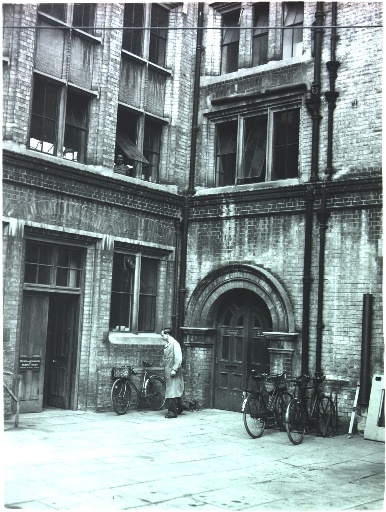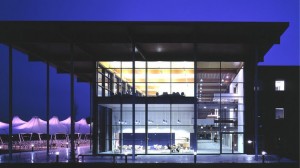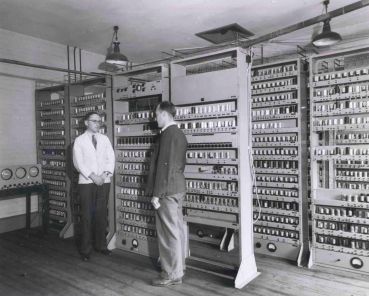We?re celebrating today: it?s the 75th anniversary of the University of Cambridge?s Computer Laboratory. From its beginnings in 1938 as the Mathematical Laboratory, it?s provided the foundations for much of our computing history; Raspberry Pi is only one of hundreds of successful business set up by academics and alumni, and we?re very proud to be associated with the Lab.

The old Mathematical Lab, on the New Museums Site in the centre of Cambridge

The University of Cambridge Computer Lab today: the William Gates Building.
Things have changed in computing since the Mathematical Laboratory?s early days. Just before our wedding, when Eben was writing up his PhD and we were living in university housing, the wife of a very old, very decorated gentlemen took me by the elbow with startlingly strong fingers after a dinner, and proffered a dire warning.
?You need to understand that life will not be easy if you marry a computer scientist, especially early in your marriage; you won?t always come first. When we were young marrieds, John would disappear for hours in the middle of the night to cool that damned machine for his supervisor.?
It turns out that ?that damned machine? was EDSAC. (My advice to ?young marrieds?: if you can?t beat them, join them.)

EDSAC1 in the 1940s, with Maurice Wilkes and William Renwick.
It?s thanks to work done in that laboratory that you?re holding a Raspberry Pi now that doesn?t need cooling at all, let alone in the middle of the night; ARM, whose technology is in the Pi?s processor, was originally a spinoff from the Computer Lab.
The Lab?s anniversary announcement says:
It was where EDSAC, the first programmable computer ever brought into general service, was built, and where microprogramming was pioneered by Maurice Wilkes, the Lab?s second Director, using EDSAC 2. Towards the end of the mainframe age, major advances were made in fields such as networked computing and computer-aided design. Cambridge?s Computer Lab was the home of the world?s first webcam. It was the place where Michael Burrows, the leading computer scientist in search engine development, learned his trade, and where Bjarne Stroustrup, inventor of the hugely popular computer language C++, did his PhD. Without the Lab, early home computers like the BBC Micro, or the low-power chip technology used in iPads and mobile phones, or the Raspberry Pi, might well never have emerged.
We?re a bit overwhelmed to find ourselves discussed in such august company. Eben?s one of the (ha) Distinguished Speakers at today?s celebrations; tomorrow it?s back to normal, but for today we?re enjoying an incredible feeling of taking part in history, and a sense of the extraordinary pace we?ve been moving at for the last 75 years.
Congratulations to everybody at the Lab, past, present and future. Here?s to the next 75 years ? let?s make them good ones!
Updated to add: I?ve just been pointed at a slideshow about the Lab?s first 75 years on the BBC News website. It?s short but interesting, and you might recognise the object in the final slide.
Source: http://www.raspberrypi.org/archives/3791
mark sanchez christina aguilera Mayan End Of The World Olivia Black World Ending 2012 gossip girl Ink Master
No comments:
Post a Comment
Note: Only a member of this blog may post a comment.